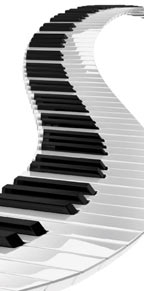
In a new “music evolutionary theory”, neuroscientist Alan
Harvey postulates that music has been central to the development of the modern
mind. Rather than a superfluous luxury, it has been integral in our development
as human beings. Harvey says that music is a way of communicating that is as
important as spoken language. His aim is to impress upon the science profession
that music is no frivolous alternative in medicine, but fundamentally important
to individuals’ health, happiness, and sense of community.
Beyond accounts of evolution, perhaps the key issue for consideration needs to
be the observable effects of music on the human psyche and on the healing of
suffering. Whatever role music may have played in the evolution of humanity, we
know that all cultures incorporated a harmony of sounds and silences – music –
that expressed their collective identity and connection with the rhythms of
life. Music has been an essential component of human community throughout time
and has served to give voice to sentiments too deep for utterance.
For decades, music therapy has demonstrated the power to comfort the ailing in
various health care settings. Many studies show the power of music to reduce
anxiety, and regulate blood pressure and breathing rate in various clinical
settings. By concentrating on beauty and harmony in our environment, we can
potentially transcend personal suffering. Enjoying music cultivates positive
emotions, increases calm, and reduces stress, all of which combats illness and
refreshes our mental state.
For music to become a seriously accepted component of treatment in the medical
and neuroscientific fields, the approach to the human being must change.
Patients must not be considered as objects for work, but subjects – persons –
who are essentially social beings, with crucial emotional, mental and spiritual
needs. Music can uplift the human psyche by strengthening a connection with
deeper inner realities and with a harmony and beauty beyond ourselves.
If we want to influence our own growth as individual human beings, let us first
observe that we “advance” much more in our quality of being when we cultivate
positive emotions, proactive thoughts, and a way of life that is
community-centred, rather than self-centred. Let us use music as a tool to
cultivate more human quality in life!